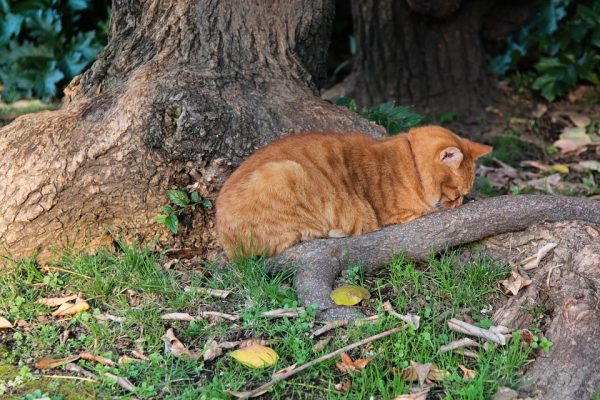Cats, like many other pets, sometimes exhibit behavioral problems if their home environment is unsuitable. This can happen for many reasons. Your elderly cat might be unhappy because you bought a new kitten home or perhaps you recently moved to a new house and your cat feels unsettled and stressed. Small children can also upset cats by harassing them when they want to sleep. Whatever the root cause, anxiety in a cat manifests in a variety of different ways.
Unwanted Toilet Behavior
Cats are naturally clean animals. They don’t like to foul in their living area, so if your litter-trained cat starts pooing or peeing outside the litter box, it should be a cause for concern. If you only have one cat, make sure his litter box is always clean. If this behavior continues, have him checked out for health issues.
In a multi-cat household, the problem could be that you don’t have enough litter boxes. Ideally, provide one litter box per cat and position them in different locations. This stops the dominant cat guarding the litter box as a mark of territorial aggression.
Dominant cats will also scent mark by eliminating outside the litter box, so the problem could be a territorial issue rather than anxiety.

Hiding Away
Anxious cats tend to hide away, out of reach. Timid cats are more likely to be anxious and stressed, so if your cat refuses to come out of the closet or you can’t find him, he may be suffering from anxiety.
Comfort Eating
Cats often comfort eat when they are stressed. Older cats, especially neutered males, are prone to weight gain. Try switching to a diet food, but if your cat is still gaining weight and shows an unhealthy interest in food, he may be anxious.
Weight Loss
Cats also lose weight when they are anxious. A cat that is being bullied by another feline won’t have access to the food, so he will lose weight. Watch out for dominance issues in a multi-cat household. You may need to try calming supplements or provide separate living spaces for your cats. Vertical space is often effective, so provide tall cat trees and fix shelves high up so submissive cats have somewhere to hide.
Crying
Some breeds of cat are more vocal than others – Siamese and other Orientals being good examples. Anxious cats will cry or vocalize more often. Pay attention if your normally quiet cat cries and calls out. It could be a sign of anxiety and stress.
Aggressive Behavior
Dogs also suffer from anxiety. CBD products for dogs are known to help dogs and since CBD also works for cats, it is worth trying CBD supplements to lessen the symptoms of anxiety and stress in your pet cat.
Anxiety and stress can cause unwanted health problems, so don’t ignore the problem. Figure out the root cause and deal with it as quickly as possible. If you are not sure what’s causing the problem, have your cat checked out by a vet.